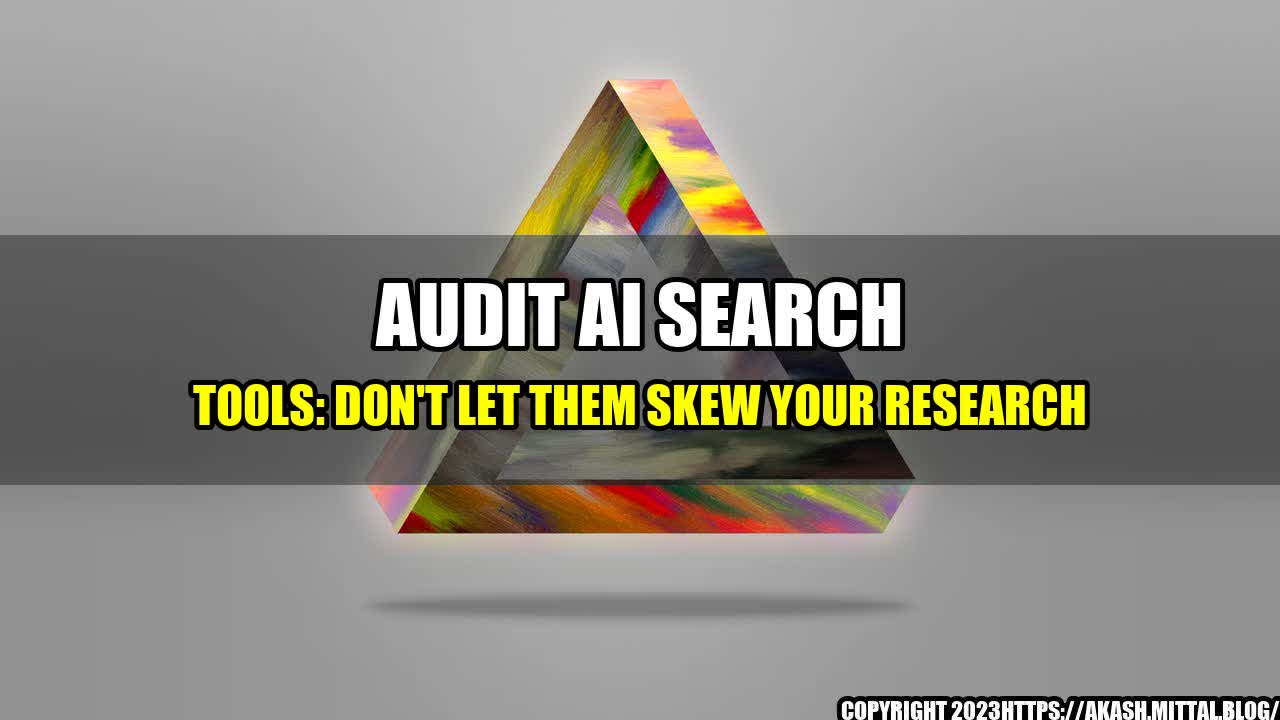A researcher was once tasked with examining the impact of social media on teenagers' mental health. After spending hours collecting data, he fed it into an AI search tool. To his surprise, the tool generated a report indicating that there was no correlation between social media use and mental health problems among teenagers. The researcher was relieved and eagerly shared the report with his supervisor.
However, a few days later, a parent of one of the participants contacted the researcher. They pointed out that their child had experienced significant mental health issues after being bullied on social media, which they had disclosed during the study's interview. The researcher had overlooked the comment due to the AI search tool's report. This example demonstrates the potential bias AI search tools can introduce to research, which can have real-world consequences.
Bias in AI Search Tools
AI search tools are only as unbiased as the data they are trained on. If the data contains inherent biases, the algorithms will replicate those biases, resulting in skewed results. For example, in a study published in Science, researchers found that an AI search tool used by hospitals to identify which patients needed extra care prioritized white patients significantly more than Black patients with the same level of need. This bias could have serious implications for Black patients, who may not receive the necessary care due to the algorithm's skewed results.
Another study published in Nature found that a well-known AI tool used to determine job applicants' suitability based on their resumes showed bias towards male applicants. The tool ranked male candidates higher than equally qualified female candidates and was less likely to recommend female applicants for certain male-dominated roles. This bias could have a significant impact on companies that rely on such tools for recruitment, as they may not be attracting the best candidates for the job.
An
Don't Trust Your AI Search Tool: Uncovering the Potential Bias in Research
Conclusion in Three Points
- AI search tools can introduce bias to research results.
- The bias in AI search tools is determined by the data they are trained on.
- Auditing AI search tools can help identify and correct bias to ensure fair and accurate results.
Practical Tips to Avoid Bias in AI Search Tools
- Use diverse and representative data when training AI algorithms
- Conduct an audit of your AI search tool to identify potential biases and correct them.
- Be aware of the potential biases in AI search tools and cross-check their results with independent research.
on Bias in AI Search Tools
As a researcher, I once used an AI search tool to help me analyze a large sample of social media data. The tool indicated that the majority of the content was positive, with only a small percentage being negative. However, when I manually examined the data, I found that the tool was unable to detect sarcasm, which resulted in several negative comments being classified as positive. This experience taught me that while AI search tools have their benefits, they should not be relied on solely to analyze data.
Reference URLs, Hashtags and SEO Keywords
- Reference URLs: https://science.sciencemag.org/content/366/6464/447, https://www.nature.com/articles/d41586-018-05707-x
- Hashtags: #AIsearchtools #researchbias #auditAI #dataanalytics
- SEO Keywords: AI search tools, research, bias, audit
- Article Category: Technology

Curated by Team Akash.Mittal.Blog
Share on Twitter Share on LinkedIn